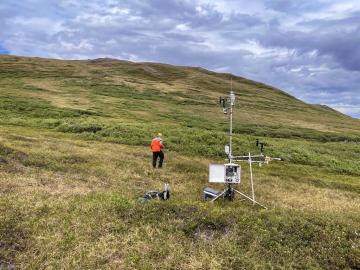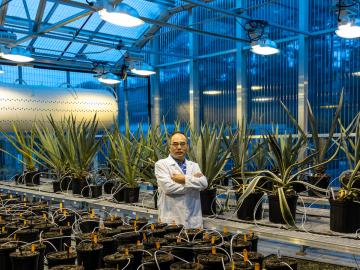Filter News
Area of Research
News Type
News Topics
- (-) Decarbonization (1)
- (-) Summit (2)
- 3-D Printing/Advanced Manufacturing (2)
- Artificial Intelligence (1)
- Big Data (1)
- Bioenergy (10)
- Biology (18)
- Biomedical (4)
- Biotechnology (4)
- Chemical Sciences (1)
- Clean Water (5)
- Climate Change (5)
- Composites (1)
- Computer Science (3)
- Energy Storage (1)
- Environment (24)
- Exascale Computing (1)
- Fusion (1)
- High-Performance Computing (5)
- Materials (3)
- Materials Science (1)
- Mercury (3)
- Microscopy (1)
- Nanotechnology (1)
- Neutron Science (1)
- Polymers (1)
- Security (1)
- Sustainable Energy (8)
Media Contacts

Improved data, models and analyses from ORNL scientists and many other researchers in the latest global climate assessment report provide new levels of certainty about what the future holds for the planet

Scientists at ORNL have discovered a single gene that simultaneously boosts plant growth and tolerance for stresses such as drought and salt, all while tackling the root cause of climate change by enabling plants to pull more carbon dioxide from the atmosphere.

The Accelerating Therapeutics for Opportunities in Medicine , or ATOM, consortium today announced the U.S. Department of Energy’s Oak Ridge, Argonne and Brookhaven national laboratories are joining the consortium to further develop ATOM’s artificial intelligence, or AI-driven, drug discovery platform.




